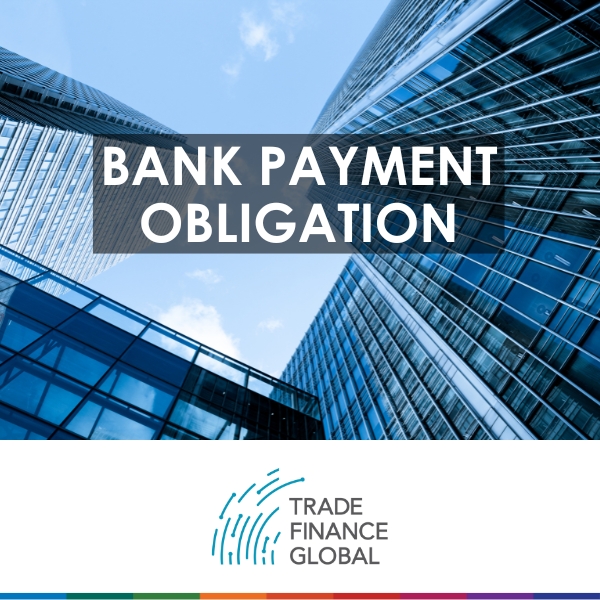Bank Payment Obligations – What are BPOs and the URBPO?


Trade Finance without Barriers
Informing Today’s Market, Financing tomorrow’s Trade.
Get Trade FinanceContent
A bank payment obligation (BPO) is a framework which is endorsed by the International Chamber of Commerce (ICC) and SWIFT, which stands as a middle ground between traditional Letters of Credit (LCs) and open account trade.
Global trade is challenged by fraudulent activity, market dynamics, and liquidity within many companies. A Bank Payment Obligation is an e-commerce (paperless) solution which offers a form of risk mitigation between suppliers and buyers via a bank.
Bank Payment Obligation – Definition
Simply put, a BPO is an irrevocable document given from a buyer’s bank to a supplier or seller’s bank, where an agreement is made to pay a specified amount of money on an agreed future date under the condition of electronic matching of data.
As with Letters of Credit which are governed by the UCP600, the Uniform Rules for Bank Payment Obligations ICC publication No. 750. (URBPO) are the rules adopted by the International Chamber of Commerce for Bank Payment Obligations.

CAPTION: Where a BPO fits in the Open Accounts (OA) and Letters of Credit (LC)
Bank Payment Obligation versus Letter of Credit?
The BPO and Letter of Credit (LC) are quite similar for the following reasons:
- The end result is the same; payment is normally advanced to the seller/supplier if certain conditions are met
- The bank stands as the intermediary or independent third party guaranteeing the payment is undertaken
Example of how a BPO transaction could work
- A buyer and a seller would agree the BPO as the payment term upon agreeing a contract. The buyer would send a Purchase Order (PO) to the seller.
- The buyer would provide data (see below) from the purchase order and payment conditions to their bank (buyers bank).
- The seller would confirm that the data from the PO is correct and send these on to their recipient bank (sellers bank). In this case, if the documents match (and the banks agree this), then the seller can ship the goods or services as agreed on the initial sales contract.
- Seller presents the data to its bank, which is then cross-checked by the buyer. Any data mismatches are resolved where possible.
- If matched by both parties, the sellers bank is informed and the seller sends the trade documents directly to the buyer. Buyer will clear goods from the customs with these documents.
- On the due date agreed in the contract, the buyers bank debits the proceeds from buyer’s account.
Data Fields, BPO and URBPO
Banks will often expect the following when verifying data points:
- Transaction reference
- PO Reference
- Buyer name and country
- Buyer Bank BIC
- Seller name and country
- Seller Bank BIC
- Obligor Bank
- Recipient Bank
- Amount / currency
- Goods and quantity
- Payment terms
- Data required (commercial, transport, insurance, certificate, other certificate)
- Expiry date
- Contact person
- Law applicable to the BPO
- Charges
BPO DOWNLOADS & USEFUL LINKS:
URBPO Guidelines






















